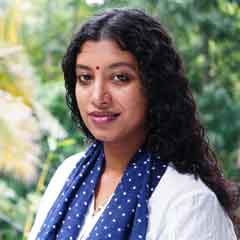Hopes dashed, fear grips Afghan students in Kerala

Mail This Article
Daughter of 38-year-old Hakeem Jan Muffaker from Kabul studies in class VIII at a government school thousands of kilometres away from home in Thiruvananthapuram. Hakeem, who has been pursuing a PhD in public administration in the political science department of the University of Kerala, has high hopes on his daughter Mina's education. With Taliban taking over the control of Afghanistan this week, Hakeem, along with thousands of parents, are looking at an uncertain future.
As a political science student, Hakeem is closely watching the developments in Afghanistan. Though his family, comprising wife and five children, is safe with him in Kerala, Hakeem is worried about the situation back in his country, which is like a second mother to him. “My brother, who works in the Afghan military, has not been allowed to go out for the past three days. Another brother is in the construction sector in Afghanistan. The entire family remains closed within the house in Kabul. Situation is unpredictable,” said Hakeem, who previously worked as director of Lands and Urban department in Afghan government.

There are 64 Afghan students in Kerala, who are pursuing their studies on campuses like Calicut University, Mahatma Gandhi University, CUSAT and Kerala varsity. Recipients of the ICCR (Indian Council for Cultural Relations) scholarship, most of the students were hoping of completing their higher education and going back to serve their country.
According to K Ayyanar, regional director of ICCR, around 38 Afghan students joined various universities in Kerala under the ICCR scholarship. “This year, we are expecting a similar number. Communication regarding the admission was forwarded to the Indian embassy in Kabul. It was under process when chaos started in Afghanistan,” he said.
According to Sabu Joseph, director of Centre for Global Academics, Kerala University, 11 students, including girls, were expected to join the universities this year through the ICCR scholarship. “Now we are not sure whether they will be able to reach here. Due to COVID-19 situation, classes were turned online. The government would process visas only for offline courses. Under the current situation, we hope the government will take steps to issue visas, so that students can come and complete the course,” he said.

Under the ICCR scholarship, a monthly stipend of Rs 18,000, Rs 20,000 and Rs 22,000 is given for UG, PG and PhD students respectively. In addition to this, they will get a house rent allowance of Rs 5500. Students from Afghanistan have been arriving in universities in Kerala for over a decade.
Another student – Mustafa Salimi, 27, who is doing MBA in Kerala University, said the current situation seems surreal. “I was too young during the first Taliban rule. But I have heard about it from my parents. Now all are scared. With the support of scholarship, I can continue here for three more semesters. I don’t know what is waiting for us when we return. My parents told me that it was total chaos there. Everything – markets, schools and universities – are all closed for the past few days,” he said.
Hakeem said that Indian government had been highly supportive of the Afghan citizens by providing financial support to infrastructure development, education etc.
Ghulam Farooq Rasuly, 32, was working as a TV journalist in Afghanistan before he moved to Kerala to pursue a masters in international relations on Mahatma Gandhi University campus in Kottayam. Rasuly is relieved as his wife and children are with him in Kerala. "If the situation turns bad, I might go abroad and take my family in Afghanistan with me," he said, adding that the unexpected situation has been unfolding in the country during the past one week. Hailing from Herat, Ghulam came to India in February due to the continuing war in Afghanistan. "Some feel that Taliban have changed. However, our experience since 1996 makes us fear for the worse,” he said.

Meanwhile, some students in Kerala expressed apprehensions in talking to the media due to the uncertainty in their country.


